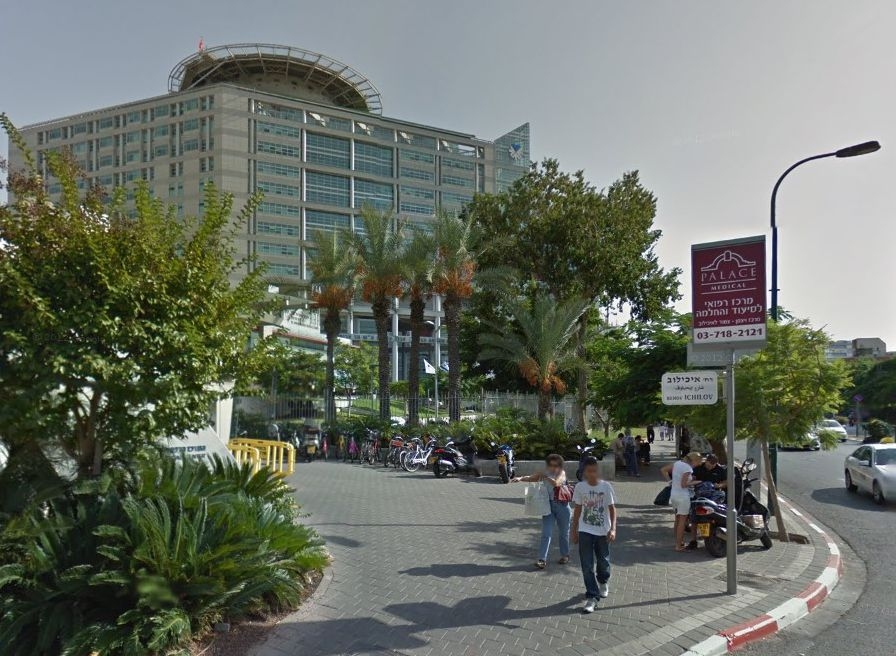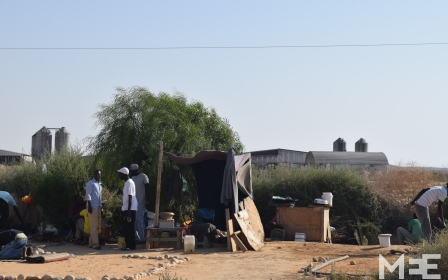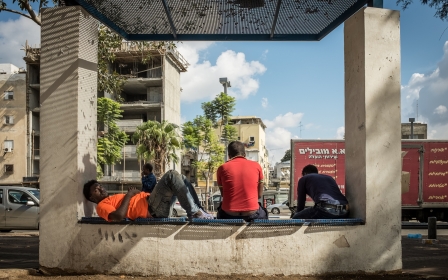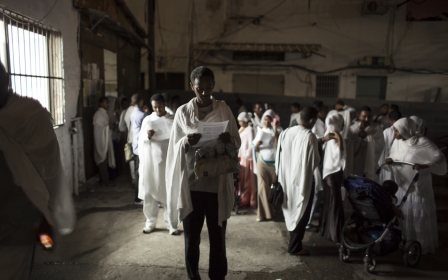Asylum seekers in Israel denied non-essential health care

Asylum seekers are unable to access essential health care in Israel after the closure of two major medical services, Israeli media has said.
Ichilov Hospital in Tel Aviv has said that a fund intended to pay for non-urgent treatment had run out of cash, reported Haaretz. This means it can no longer attend to those who are uninsured, except in an emergency. And the Gesher clinic in Jaffa, which the ministry of health funds, said that it had no capacity to take fresh patients.
There are almost 150,000 foreigners in Israel who lack legal status. Among the most vulnerable are an estimated 45,000 asylum seekers (that figure excludes children), the majority of whom are Bedouin who cannot afford health insurance at around 120 shekels ($30) a month.
Many have been kidnapped and tortured in the Sinai region on their way to Israel. Gesher’s is the only clinic that asylum seekers can use for mental health services, Haaretz reported.
There are two more clinics in Tel Aviv offering only minimal services to foreigners with no insurance in both Tel Aviv and Jaffa. But they cover only the bare essentials and are no substitute for the services offered by Gesher and Ichilov.
In 2014 a report by a state comptroller’s report harshly criticised the state’s failure to provide adequate medical services to asylum seekers. It said this failure appeared to violate the Basic Law on Human Dignity and Liberty, as well as international conventions on social rights that Israel has signed.
Human rights group: To get treated you need to become sicker
One 12-year-old Eritrean, the daughter of an asylum seeker, had been receiving tests, paid for by Ichilov, to diagnose a leg condition. She waited months for an appointment to decide on the next stage of her treatment - but when the time came, her mother, Tamet, was told that she could not see the consultant unless they paid $75 as there were no more funds left.
Tamet, who is single and has four children, could not afford to see the doctor. Another of her daughters is asthmatic and receiving monthly medication but that too has had to stop, reported Haaretz.
Physicians for Human Rights, a non-profit group which uses science and medicine to stop human rights violations, has been active in the region since the beginning of the first Palestinian uprising in 1988.
Ran Goldstein, its executive director, told Haaretz that he blames the ministry of health for the current issues. “Unfortunately, we have to tell our patients, some of whom have chronic illnesses or need vital operations, that to get treatment in Israel, they have to hope they get worse,” he said. “Only then will the hospitals admit them.”
He described the government’s health policy as racist and suggested it extend health cover to those who are not in Israel legally. It was "ridiculous," he said, for a patient who could be treated with “100 shekels worth of antibiotics” to be allowed to become ill till he then needed much more costly care, which would run into thousands of shekels.
An Ichilov spokesperson said that for years the hospital gave asylum seekers and other non-Israelis more extensive treatment than any other hospital in Israel, all from its own budget. They added that “the hospital will continue to provide urgent medical care to this population just as it does today”.
The ministry of health said that it makes medical provision for those without legal status in Israel, albeit “within the limits of its budget” and that hospitals treat all urgent cases. It is looking into offering mental health services via the Terem clinic in Tel Aviv, its statement continued, as well as making wider plans for insurance for people without legal status.
New MEE newsletter: Jerusalem Dispatch
Sign up to get the latest insights and analysis on Israel-Palestine, alongside Turkey Unpacked and other MEE newsletters
Middle East Eye delivers independent and unrivalled coverage and analysis of the Middle East, North Africa and beyond. To learn more about republishing this content and the associated fees, please fill out this form. More about MEE can be found here.




